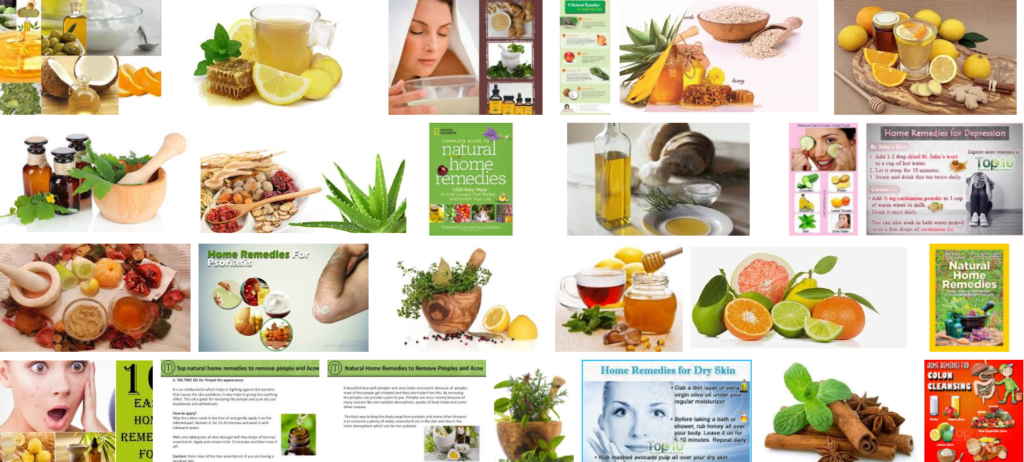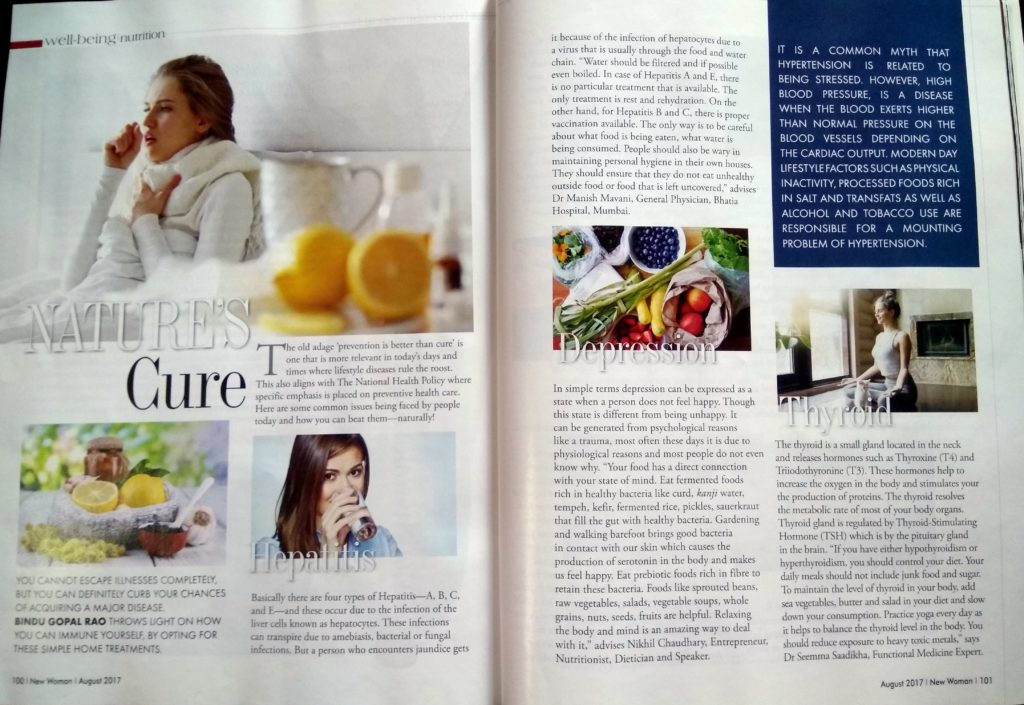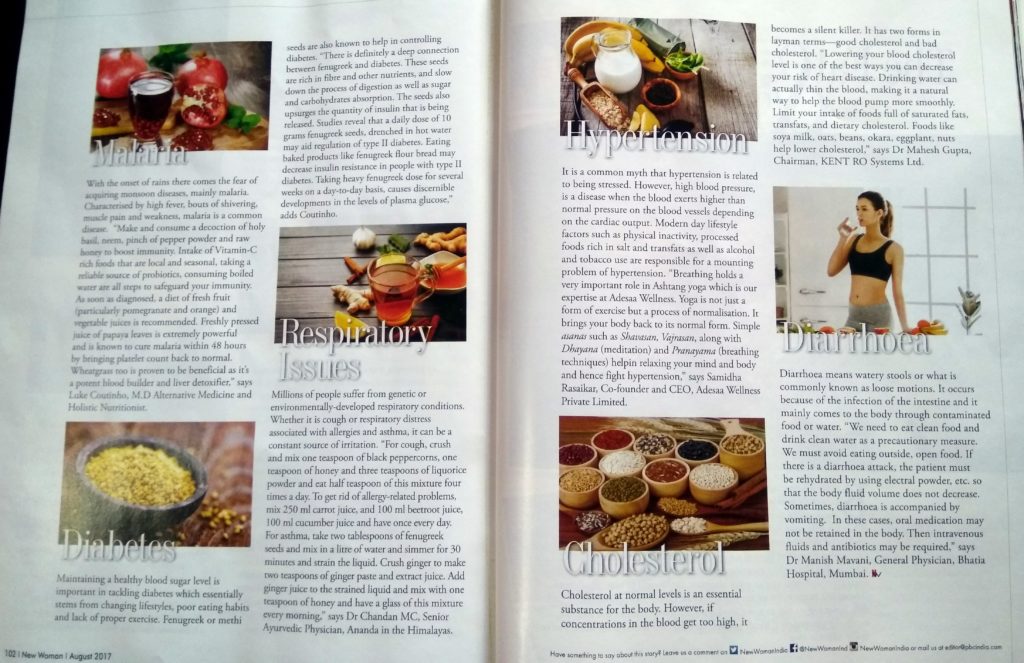The old adage ‘prevention is better than cure’ is one that is more relevant in today’s days and times where lifestyle diseases rule the roost. This also aligns with The National Health Policy where specific emphasis is placed on preventive healthcare. Here are some common issues being faced by people today and how you can beat them – naturally!
Hepatitis
Basically there are four types of hepatitis A, B, C, and E and this occurs due to the infection of the liver cells known as hepatocytes. These infections can occur due to amebiasis, bacterial or fungal infections. But a person who encounters jaundice gets it because of infection of hepatocytes due to a virus that is usually through the food and water chain. “Water should be filtered and if possible even boiled. In case of Hepatitis A and E, there is no particular treatment that is available. The only treatment is rest and rehydration. On the other hand, for Hepatitis B and C, there is proper vaccination available. The only way is to be careful about what food is being eaten, what water is being consumed. People should also be careful in maintaining personal hygiene in their own houses. They should ensure that they do not eat unhealthy outside food or food that is left uncovered,” advices Dr. Manish Mavani, General Physician, Bhatia Hospital, Mumbai.
Depression
In simple terms depression can be expressed as a state when a person does not feel happy or does not feel good. This state is different from feeling unhappy. It can be generated from psychological reasons like a trauma but most of the depression these days is due to physiological reasons and most people do not even know why. “Your food has a direct connection with your state of mind. Eat fermented foods rich in healthy bacteria like curd, kanji water, Tempeh, Kefir, Fermented Rice, Pickles, sauerkraut that fill the gut with healthy bacteria. Gardening and walking barefoot brings good bacteria in contact with our skin which causes the production of serotonin in the body and makes us feel happy. Eat prebiotic foods rich in fibre to retain these bacteria. Foods like sprouted beans, raw vegetables, salads, vegetable soups, whole grains, nuts, seeds, fruits are helpful. Relaxing the body and mind is an amazing way to deal with it,” advices Nikhil Chaudhary, Entrepreneur, Nutritionist, Dietician and Speaker.
Thyroid
The Thyroid is a small gland which located in neck that releases hormones Thyroxine (T4) and Triiodothyronine (T3) that helps to increase the oxygen in the body and stimulates your body and helps to produce new proteins. The thyroid resolves the metabolic rate of most of your body organs. Thyroid gland is regulated by Thyroid-Stimulating Hormone (TSH) and is made by pituitary gland in the brain. “If you have hypothyroidism or hyperthyroidism you should take control of your diet. Your daily meals should not include junk food and sugar. To maintain the level of thyroid in your body, add sea vegetables, butter, salads in your diet and slow down your eating. Practice yoga everyday- yoga helps to balance the thyroid level in the body. You should reduce the exposure to heavy metal toxicity,” says Dr. Seemma Saadikha, Functional Medicine Expert.
Malaria
With onset of rains there comes a fear of acquiring monsoon diseases particularly Malaria. Characterised by high fever, bouts of shivering, muscle pain and weakness, malaria is the most common disease to. “Chewing or making a decoction of holy basil, neem, pinch of pepper powder and raw honey works by boosting immunity. Intake of Vitamin C rich foods that are local and seasonal, taking a reliable source of probiotics, consuming boiled water are all steps to safeguard immunity. As soon as the diagnosis is made, fresh fruit (particularly pomegranate and orange) or vegetable juice fast is recommended. Freshly pressed juice of papaya leaves is extremely powerful and is known to cure malaria within 48 hours by bringing platelet count back to normal. Wheatgrass too is proven beneficial as it’s a potent blood builder and liver detoxifier,” says Luke Coutinho, M.D. Alternative Medicine and Holistic Nutritionist.
Diabetes
Maintaining a healthy blood sugar level is key in containing diabetes. Changing lifestyles, poor eating habits and lack of proper exercise cause the problem. Fenugreek or methi seeds are known to help in controlling diabetes. “There is definitely a deep connection between fenugreek and diabetes. A miracle ingredient for people living with diabetes, these seeds are rich in fiber and other nutrients, that slow down the process of digestion and the body’s ability to absorb sugar and carbohydrates. The seeds may also help mend the ways the body utilizes sugar and upsurges the quantity of insulin that is being released. Studies reveal that 10 grams daily dose of fenugreek seeds, drenched in hot water may aid to regulate Type II diabetes. Eating baked products like fenugreek flour bread may decrease insulin resistance in people with Type II diabetes. Taking heavy fenugreek dose for several weeks on a day-to-day basis, causes visible developments in the levels of plasma glucose,” adds Coutinho.
Respiratory Issues
Millions of people suffer from genetic or environmentally developed respiratory conditions. Whether it is cough associated with the common cold or respiratory distress associated with allergies and asthma, respiratory challenges are a constant source of irritation. “For cough, take 1 tsp black peppercorns, 1 tsp honey and 3 tsp liquorice powder and crush them all to powder and eat ½ tsp of this mixture 4 times a day. For allergy, mix 250 ml carrot juice, 100 ml beetroot juice, 100 ml cucumber juice and have once every day as this helps reduce allergic reaction and soothes existing allergies. For asthma, take 2 tbsp of fenugreek seeds and mix in a litre of water and simmer for 30 minutes and strain the liquid. Crush ginger to make 2 tsp of ginger paste and extract juice. Add ginger juice to the strained liquid and mix with 1 tsp of honey and have a glass of the mixture every morning,” says Dr. Chandan MC, Senior Ayurvedic Physician, Ananda in the Himalayas.
Hypertension
There is a common myth that hypertension is related to being stressed. High blood pressure, is a disease when the blood exerts higher than normal pressure on the blood vessels depending on the cardiac output. Modern day lifestyle factors such as physical inactivity, processed foods rich in salt and trans fats, and alcohol and tobacco use are responsible for a growing problem of hypertension. “Breathing holds a very important role in Ashtang yoga which is our expertise at Adesaa Wellness. Yoga is not a just form of exercise but a process of normalisation. It brings your body back to its normal form. Simple asanas such as Shavasan, Vajrasan, along with Dhayana (Medication) and Pranayama (Breathing Techniques) helps in relaxing your mind and body and hence fight hypertension,” says Samidha Rasaikar, Co-Founder & CEO, Adesaa Wellness Private Limited. Reducing sodium intake and increasing potassium and avoiding any kind of processed food with emphasis on eating more green vegetables helps.
Cholesterol
Cholesterol at normal levels is an essential substance for the body. However, if concentrations in the blood get too high, it becomes a silent killer and has two forms on layman terms Good Cholesterol and Bad Cholesterol. “Lowering your blood cholesterol level is one of the best ways you can decrease your risk of heart disease. Drinking water can actually thin the blood, making in a natural way to help the blood pump more smoothly. Limit your intake of foods full of saturated fats, trans fats, and dietary cholesterol. Foods like Soya Milk, Oats, Beans, Okara, Eggplant, Nuts help lower cholesterol,” says Dr. Mahesh Gupta, Chairman, KENT RO Systems Ltd.
Diarrhoea
Diarrhoea means watery stools or what is commonly known as loose motions. It occurs because of the infection of the intestine and it mainly comes to the body through contaminated food or water. “We need to eat clean food and drink clean water as a precautionary measure. We must avoid eating outside, open food. If there is a diarrhoea attack, the patient must be rehydrated by using electrol powder etc so that the body fluid volume does not decrease. Sometimes, diarrhoea is accompanied by vomiting. In these cases, oral medication may not be retained in the body. Then intravenous fluids and antibiotics may be required,” says Dr. Manish Mavani, General Physician, Bhatia Hospital, Mumbai.
This story appeared in the August 2017 issue of New Woman magazine here:



